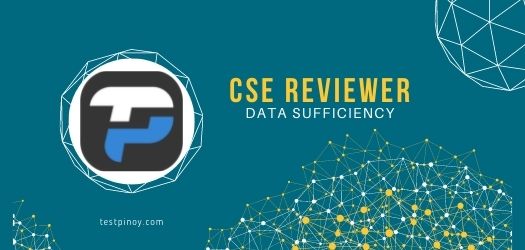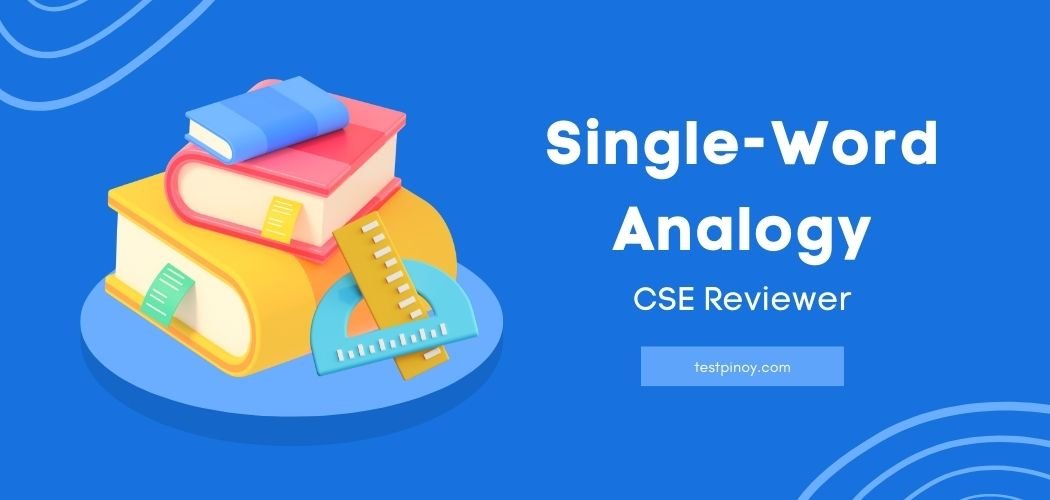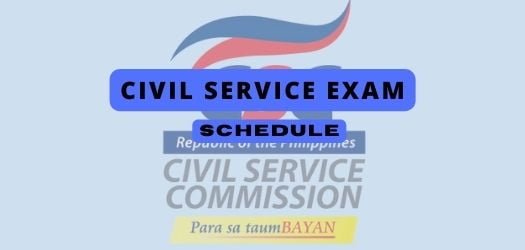The Philippine Constitution exam covers various topics related to the 1987 Constitution of the Philippines. It’s a test designed to measure your knowledge and understanding of the fundamental law of the country.
Topics covered in this portion may include principles and structure of government, fundamental rights, local and national governance, and processes of amendment and revision.
General Information CSE reviewer
Question 1. What are the 3 main branches of the Government of the Philippines?
A. Senate, Supreme Court, Congress
B. Presidential, Unicameral-Parliamentary, Bicameral-Parliamentary
C. Legislative, Executive, Judicial✅
D. The Legislative, The Senate, The Supreme Court
Question 2. The Supreme Court is composed of a Chief Justice and how many Associate Justices?
A. 12
B. 13
C. 14✅
D. 15
Question 3. The Commander-in-Chief of all armed forces of the Philippines is _____.
A. Air Force Commander
B. The President of the Philippines✅
C. Chief Justice
D. AFP Chief Lieutenant General
Question 4. The executive power shall be vested in the _____.
A. The President of the Philippines✅
B. House of Representatives
C. The Supreme Court
D. The Congress
Question 5. The legislative power shall be vested in the _____ which shall consist of the Senate and House of Representatives.
A. Congress of the Philippines✅
B. House of Ombudsman
C. The Supreme Court
D. Bureau of Internal Revenue
Question 6. The Senate shall be composed of how many senators?
A. 21
B. 22
C. 23
D. 24✅
Question 7. How long shall the term of office of the senators be commended?
A. 3 years
B. 4 years
C. 5 years
D. 6 years✅
Question 8. The term of office of the President and Vice-President of the Philippines shall be up to how many years?
A. 3 years
B. 4 years
C. 5 years
D. 6 years✅
Question 9. The members of the House of Representatives shall be elected for a term of _____.
A. 3 years✅
B. 4 years
C. 5 years
D. 6 years
Question 10. The following shall be exempted from taxation except:
A. Lands and buildings✅
B. Churches and convents
C. Charitable institutions
D. Non-profit cemeteries
Question 11. The Congress, by a vote of _____ of both Houses in joint session assembled, voting separately, shall have the sole power to declare a state of war.
A. two-thirds✅
B. one-half
C. three-quarters
D. minority
Question 12. It states that “no person shall be deprived of life, liberty, or property without due process of law, nor any person be denied the equal protection of the laws.”
A. Article VI
B. Bill of Rights✅
C. Republic Act
D. Court Order
Question 13. All of the following are TRUE except:
A. No person shall be compelled to be a witness against himself.
B. No person shall be imprisoned for non-payment of debt or poll tax.
C. No ex post facto law or bill of attainder shall not be enacted.✅
D. No person shall be detained solely by reason of his political beliefs and aspirations.
Question 14. The following are citizens of the Philippines except:
A. Those fathers or mothers are citizens of the Philippines.
B. Those who are born before January 17, 1973, to Filipino mothers, who elect Philippine citizenship upon reaching the age of majority.
C. Those who are naturalized citizens of the Philippines in accordance with the law.
D. All of the above is true.✅
Question 15. It is the right and obligation of all citizens, who are at least 18 years of age and qualified by law, to vote in the election of national and local officials of the government without literacy, property, or other substantive requirements.
A. Suffrage✅
B. Election
C. Voting power
D. Civil right
Question 16. The three inherent powers of the state are the following except:
A. Police Power
B. Power of Eminent Domain
C. Power of Taxation
D. Power to Impeach✅
Question 17. It is the power of the State to promote the public welfare by restraining the use of both liberty and property of all people.
A. Police Power✅
B. Power of Eminent Domain
C. Power of Taxation
D. Power to Impeach
Question 18. It is the power of the state to take properties for the purpose of public use upon payment of just compensation.
A. Police Power
B. Power of Eminent Domain✅
C. Power of Taxation
D. Power to Impeach
Question 19. It is the power of the State to impose charges or burdens on persons and properties, and property rights for the purpose of raising revenues to protect the people and extend public projects and services.
A. Police Power
B. Power of Eminent Domain
C. Power of Taxation✅
D. Power to Impeach
Question 20. The following are members of the Constitutional Commission except:
A. Commission on Civil Rights✅
B. Commission on Elections
C. Civil Service Commission
D. Commission on Audit
Question 21. It states that public office is a public trust and that public officers and employees must, at all times, be accountable to the people, serve them with utmost responsibility, integrity, loyalty, and efficiency; act with patriotism and justice and lead most lives.
A. Public Trust
B. Constitution Rights
C. Accountability✅
D. Responsibility
Question 22. Who shall have the exclusive power to initiate all cases of impeachment?
A. House of Blue Ribbon Committee
B. House of Representatives✅
C. House of the Senate
D. Speaker of the House
Question 23. R.A. 6713 is an act to uphold the time-honored principle of public office being a public trust, granting incentives and rewards for exemplary service, enumerating prohibited acts, and providing penalties for violations thereof and for other purposes.
A. Preamble
B. Code of Ethics
C. Code of Government Officials
D. Code of Conduct and Ethical Standards for Public Officials and Employees.✅
Question 24. The following are the duties and responsibilities of Public Officials and Employees except:
A. Act promptly on letters, inquiries, and calls for any other form of communication sent by the public.
B. Submit performance reports of the agency or office regularly.
C. Accept gifts from the public upon prioritizing their queries.✅
D. Process documents and papers expeditiously.
Question 25. It is a written instrument containing the proposition and required number of signatories and shall be in a form determined by and submitted to the Commission on Elections.
A. Bill
B. Law
C. Proposition
D. Petition✅
Question 26. It is the electoral process by which an initiative on the Constitution is either approved or rejected by the people.
A. Referendum
B. Plebiscite✅
C. Petition
D. Initiative
Question 27. It is the power of the electorate to approve or reject legislation through an election called for the purpose.
A. Referendum✅
B. Plebiscite
C. Petition
D. Initiative
Question 28. This law promotes responsible family planning and the proper use of reproductive methods to eliminate over-population growth.
A. RH Bill
B. Responsible Parenthood and Reproductive Heal Law✅
C. Reproductive Law
D. Family Planning
Question 29. It is a specialized agency of the United Nations that concerns international public health.
A. Department of Health
B. World Health Organization✅
C. International Health Organization
D. All of the above
Question 30. It is the law in the Philippines that aims to address legal issues concerning online interactions and harmful internet behavior.
A. Cybersquatting
B. Cybercrime act
C. Cybercrime Prevention Act✅
D. Cyber Identity Theft Act



